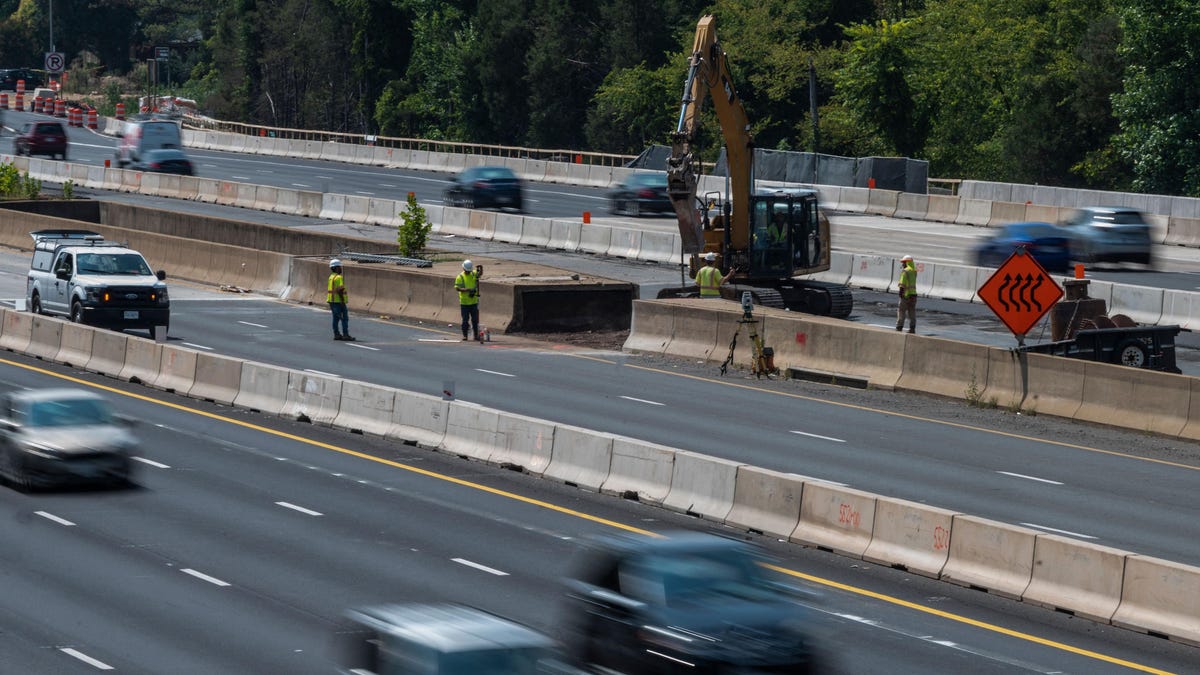The U.S. Would Rather Waste Billions to Build New Highways Than Fix the Broken Ones

Photo: Andre Caballero-Reynolds (Getty Images)
The U.S. is throwing away billions of dollars on the construction of new highways instead of fixing old ones. Now that the federal government is poised to funnel billions more through the Infrastructure Investment and Jobs Act, researchers are trying to convince state officials to repair old highways rather than expanding America’s highway system with costly new corridors, as the Hill reports.
The latest data from the U.S. Public Interest Research Group claims that billions of dollars are being heaped on highway expansions that don’t actually lower congestion, while roads that are badly in need of repair go overlooked:
Across the country, 173,000 miles of road are classed as being in “poor” condition, more than a third of bridges are in need of major repairs or replacement, and 7% of bridges are considered “structurally deficient.”
Still, state officials insist on ear-marking taxpayer dollars for new highways, and this has produced a massive maintenance backlog, which officials could finally put a dent in by using the influx of funds from the recently-passed $1.2 trillion infrastructure bill.
The PIRG highlights seven proposed highway expansions throughout the U.S., but the top three as far as cost are on the East Coast and in the Midwest.
G/O Media may get a commission
28% Off
Apple AirPods Pro Wireless Earbuds
Music+
These are the pinnacle of Apple AirPod design, and feature active noise cancelling, a transparency mode for when you need to hear what’s around you, spatial audio for accuracy, adaptive EQ, and are even sweat resistant.
In Maryland, the Montgomery County M-83 highway will cost $1.3 billion for a long-awaited highway with plans going back to the ’60s. But the M-83 would reportedly threaten 25 residential neighborhoods, hundreds of acres of public forests, wetlands and other protected land within Montgomery County’s Ag Reserve.
A bridge project in Ohio and Kentucky will cost an estimated $2.8 billion for the construction of the Brent Spence Bridge, which would boast ten-lanes spanning the Ohio River and, yet, could make “one of the country’s worst traffic bottlenecks” even worse, per the PIRG.
But the most expensive highway proposal is a collection of 14 construction plans under the New Jersey Turnpike & Garden State Parkway widening projects. The large-scale expansion will cost over $16 billion in all, and add hundreds of miles of new lanes to the busy highway. The PIRG says it’s not only costly, but also squarely against New Jersey’s plans to reduce its emissions.
When added up with the rest, these new construction and expansion proposals would cost over $22 billion dollars. And even though spending on infrastructure is a usually a good investment, research shows new highways eventually lead to more congestion, and also set off a chain reaction that contributes to emissions.
In light of that, the PIRG says a fix-it-first policy could go a long way to repairing sections of crumbling American infrastructure. And that would also mean putting money aside for future maintenance instead of spending so much on projects that look good at a glance, but don’t do much good in the long run.
Photo: Andre Caballero-Reynolds (Getty Images)



